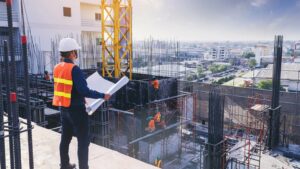How to Record a Podcast Remotely: A Guide to Seamless Podcast Recording with Podshop
In today’s fast-paced, digital-first world, podcasts have become one of the most engaging and accessible ways to share stories, knowledge, and discussions. But recording a podcast, especially remotely, comes with its own set of challenges. Whether you’re a seasoned podcaster or just getting started, mastering the art of remote podcast recording is essential for keeping up with the demands of your audience.
At Podshop, we understand the intricacies of podcast production and have designed our services to provide seamless solutions for remote podcast recording. In this blog, we’ll dive into the best practices, tools, and techniques for recording podcasts remotely while ensuring top-notch audio quality, efficiency, and a professional sound.
Why Choose Remote Podcast Recording?
Recording podcasts remotely offers tremendous flexibility, allowing hosts and guests to participate from different locations without being in the same physical space. This is especially useful if your guest lives far away or has a busy schedule. The convenience of remote recording means you can collaborate with experts, influencers, and guests worldwide without worrying about travel logistics.
However, while remote recording opens new doors, it also brings challenges like poor audio quality, internet lag, and synchronization issues. That’s where using a dedicated podcast recording studio or remote recording tools like the ones provided by Podshop can make all the difference.
1. Setting Up Your Remote Podcast Recording Studio
Before diving into the recording process, it’s important to create a reliable and efficient podcast recording setup. While you may not be in a professional studio, you can still replicate a podcast recording studio environment at home or remotely by focusing on the following aspects:
a. Quality Equipment
Investing in good equipment is non-negotiable for podcast recording. Here’s what you’ll need:
- Microphone: A high-quality condenser microphone is essential for capturing clear and crisp audio. USB microphones like the Audio-Technica ATR2100x or Blue Yeti are great for home use.
- Headphones: Closed-back headphones like Audio-Technica ATH-M50x will help you hear every detail of the audio, ensuring there are no distracting background noises.
- Pop Filter: To minimize plosive sounds (the harsh ‘P’ and ‘T’ sounds), use a pop filter over your microphone.
- Stable Internet Connection: Since you’ll be recording remotely, a stable and fast internet connection is key to avoiding lags and interruptions.
b. Recording Space
While you don’t need a professional soundproofed room, recording in a quiet space is essential. Choose a room with minimal echo and noise. Carpeted rooms or spaces with curtains, furniture, and soft materials will help absorb sound, reducing echo.
2. Choosing the Right Remote Podcast Recording Tools
The key to successful remote podcast recording is choosing the right software and platforms. At Podshop, we recommend and provide access to industry-leading podcast recording tools that ensure high audio quality and ease of use. Here are some of the most popular options:
a. Zencastr
Zencastr is one of the most popular tools for remote podcast recording. It records each participant’s audio locally on their computer and then uploads it to the cloud. This ensures high-quality sound, even if the internet connection is unstable. Zencastr also supports separate audio tracks for each guest, making post-production easier.
b. Riverside.fm
Riverside.fm is another excellent tool that offers local recording and video podcasting capabilities. Like Zencastr, it captures uncompressed audio and video locally, ensuring studio-quality recordings even when recording remotely.
c. SquadCast
SquadCast is a user-friendly tool designed specifically for remote podcast recording. It offers high-quality audio and supports multiple guests. The best part? It stores recordings in the cloud, ensuring you never lose an episode due to a technical issue.
d. Podshop’s Studio Tools
At Podshop, we provide a complete suite of remote podcast recording solutions tailored to your specific needs. Our remote recording services ensure seamless communication between hosts and guests, delivering superior audio quality. With Podshop’s tools, you can focus on content while we handle the technical aspects.
3. Best Practices for Recording a Podcast Remotely
While tools like Zencastr, Riverside.fm, and SquadCast offer reliable solutions, following these best practices will ensure your remote podcast sounds professional and polished:
a. Test Your Setup
Before recording the actual podcast, conduct a test run with your guest. This helps ensure that the internet connection is stable, the microphone works properly, and the recording software is set up correctly. Podshop recommends testing at least a day before the recording session to fix any potential issues in advance.
b. Optimize Internet Connection
As your podcast is recorded over the internet, the quality of your connection can make or break the recording. If possible, use a wired connection instead of Wi-Fi to avoid drops in audio quality. Ask your guest to do the same.
c. Minimize Background Noise
To achieve professional-grade audio quality, you and your guest should record in a quiet environment. Turn off any fans, air conditioning units, or appliances that could create background noise. Muting notifications and ensuring there’s no distraction during the recording is equally important.
d. Use Headphones
Both you and your guest should wear headphones during the recording to prevent sound from bleeding into the microphone, which can cause echo and feedback. This also helps you monitor the audio and catch any potential issues in real-time.
e. Backup Your Recordings
Always record a backup of your podcast using a second device or tool. Most remote podcast recording platforms allow for automatic backups, but it’s always wise to use a separate device for an additional safety net. With Podshop’s tools, you can rest easy knowing that your recordings are securely stored and backed up.
4. Post-Production: Editing and Enhancing Your Podcast
Once you’ve finished recording, the next step is post-production. This is where you clean up the audio, remove any mistakes, and enhance the sound quality. At Podshop, we offer professional editing services to ensure your podcast sounds polished and engaging.
a. Editing Software
For DIY podcasters, editing software like Audacity, GarageBand, or Adobe Audition can help you fine-tune your podcast. These tools allow you to remove background noise, adjust volume levels, and cut out unwanted segments.
b. Sound Levels
Ensure that the sound levels are consistent throughout the episode. If one guest is significantly louder than another, it can be jarring for the listener. Use normalization tools to balance the audio levels.
c. Add Music and Effects
Music can add personality to your podcast. Use background music for intros, outros, or transitions between segments. However, be careful not to overpower the conversation—music should complement, not distract.
5. Podshop’s Remote Podcast Recording Services
At Podshop, we understand that recording a podcast remotely can be a daunting task, especially for new podcasters. That’s why we’ve developed a comprehensive range of services to help you with every step of your podcasting journey. Whether you need a fully equipped podcast recording studio or access to remote recording tools, we’ve got you covered.
a. Professional Podcast Recording Studios
If you prefer recording in a studio environment but need to collaborate remotely, our fully equipped podcast recording studios offer the perfect solution. With advanced audio equipment and a comfortable space for recording, Podshop studios are designed to make your podcast sound professional, no matter where your guest is located.
b. Remote Recording Packages
Podshop’s remote recording packages include everything you need for high-quality audio recording from multiple locations. We provide access to professional-grade software, technical support, and editing services to ensure your podcast shines.
c. Expert Editing and Post-Production
Let us handle the tedious parts. Our expert team will edit your podcast, enhance sound quality, add music and effects, and ensure your final product is polished and professional.
Final Thoughts
Remote podcast recording is an incredibly convenient way to collaborate with guests from all over the world, but it requires the right tools and techniques to ensure professional quality. With Podshop’s services, you’ll have access to state-of-the-art tools, studios, and expertise to make your podcast stand out from the crowd. Whether you’re a solo podcaster or part of a larger team, we’re here to support you at every step of your podcasting journey.
So, are you ready to take your podcast to the next level? Explore Podshop’s remote podcast recording services today and bring your creative vision to life!












Post Comment